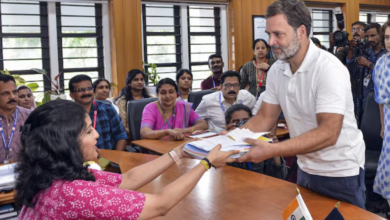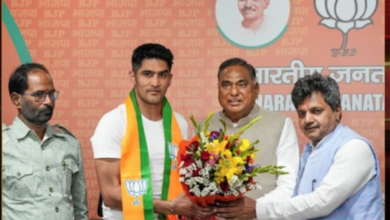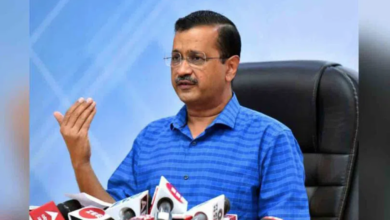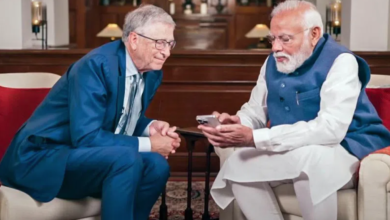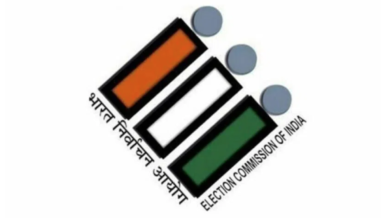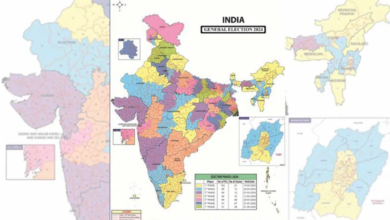World is in state of crisis: PM Modi at Voice of Global South summit

NEW DELHI: Prime Minister Narendra Modi on Thursday said the “world is in a state of crisis (and that) it is difficult to predict how long this state of instability will last.”
Inaugurating the virtual two-day Voice of Global South Summit, Modi called for “respect (of the) sovereignty of all nations, rule of law and peaceful resolution of differences and disputes; and reform (of) international institutions, including the United Nations, to make them more relevant.”
Over 120 nations are expected to participate in various ministerial sessions over the two days.
The inaugural session was attended in virtual mode by 10 heads of state or government including Bangladesh PM Sheikh Hasina and Guyana President Mohamed Irfaan Ali. Other participating nations included Senegal, Mozambique Uzbekistan, Cambodia, Thailand, Vietnam, Mongolia and Papua New Guinea.
Modi said the “people of the Global South should no longer be excluded from the fruits of development (and that) together we must attempt to redesign global political and financial governance”, adding that “this can remove inequalities, enlarge opportunities, support growth and spread progress and prosperity.”
He added: “Most of the global challenges have not been created by the Global South. But they affect us more. We have seen this in the impacts of the Covid-19 pandemic, climate change, terrorism and even the Ukraine conflict. The search for solutions also does not factor in our role or our voice.”
The Prime Minister said: “Despite this, it is also clear that we developing countries are full of positive energy, full of confidence. In the 20th century, the developed countries were the drivers of the global economy.”
He pointed out that most advanced economies were slowing down. “Clearly, in the 21st century, global growth will come from countries of the South. I think that if we work together, we can set the global agenda…”
“We, the Global South, have the largest stakes in the future. Three-fourths of humanity lives in our countries. We should also have equivalent voice,” Modi said. “Hence, as the eight-decade old model of global governance slowly changes, we should try to shape the emerging order… Despite the challenges the developing world faces, I remain optimistic that our time is coming.”
Talking about the assistance given by India, Modi said: “Our development partnerships cover all geographies and diverse sectors. We supplied medicines and vaccines to over 100 countries during the pandemic. India has always stood for a greater role for developing countries in determining our common future.”
Suggesting a way out of the global crisis, Modi added: “To re-energise the world, we should together call for a global agenda of ‘Respond, Recognise, Respect and Reform’: Respond to the priorities of the Global South by framing an inclusive and balanced international agenda, recognize that the principle of ‘Common but Differentiated Responsibilities’ applies to all global challenges, respect sovereignty of all nations, rule of law and peaceful resolution of differences and disputes; and reform international institutions, including the United Nations, to make them more relevant.”
In his message to developing nations, Modi said: “The need of the hour is to identify simple, scalable and sustainable solutions that can transform our societies and economies. … In the last century, we supported each other in our fight against foreign rule. We can do it again in this century, to create a new world order that will ensure the welfare of our citizens.”
He told the Global South, “As far as India is concerned, your voice is India’s voice. Your priorities are India’s priorities… I am confident that together the Global South can produce new and creative ideas. These ideas can form the basis of our voice in the G-20 and other forums.”
The PM said: “As India begins its G-20 presidency this year, it is natural that our aim is to amplify the Voice of the Global South. For our G-20 presidency, we have picked the theme of ‘One Earth, One Family, One Future’. This is in line with our civilisational ethos. We believe the path to realise ‘oneness’ is through human-centric development. People of the Global South should no longer be excluded from the fruits of development. Together we must attempt to redesign global political and financial governance. This can remove inequalities, enlarge opportunities, support growth and spread progress and prosperity.”
Modi pointed out: “The need of the hour is to identify simple, scalable and sustainable solutions that can transform our societies and economies. With such an approach, we shall overcome the difficult challenges — whether it is poverty, universal healthcare or building human capacities.”
Commenting on the remarks of other foreign leaders, said: “Today’s interventions also brought out the common challenges that are on the top of all our minds. These mainly concern the lack of resources for our development needs, and increasing instability both in the natural climate and the geopolitical climate. In the upcoming sessions today and tomorrow, we will further amplify and develop the valuable ideas which have emerged from our discussions today. Our effort will be to distil action-points for the Global South — both for what we can do together, and for what we can seek together on the global agenda. The Voice of the Global South needs to set its own tone. Together, we need to escape the cycle of dependency on systems and circumstances which are not of our making.”

